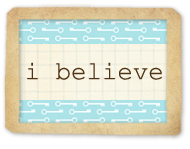a Portion of Peter and the Pentecost
The Acts 2
The Pentecost was a day celebrating the ascension of Christ
into heaven. It took place seven Sundays (50 days) after the feast of the
Passover and was observed by faithful Jews. In the book of Acts, chapter 2,
starting in verse 2, we read about the miracles poured upon the Apostles that
were gathered together, on this day of Pentecost.
“And suddenly there came a sound from heaven as of a rushing
mighty wind, and it filled all the house where they were sitting.”
And there appeared unto them cloven tongues like as of fire,
and it sat upon each of them.
And they were all filled with the Holy Ghost, and began to
speak with other tongues, as the Spirit gave them utterance.”
So as they were all sitting around discussing Apostle stuff,
the powers of heaven came in as a wind and engulfed them. They were so overcome
with the Holy Ghost, that they were able to speak, each of them, in different
languages.
When news got around of this miraculous splendor, groups of
people flocked in to see what it was about. Foreign spectators were shocked,
and confused at how these Galileans were able to speak to them in their own
languages. Verse 12:
“And they were all amazed, and were in doubt, saying one to
another, What meaneth this?”
There were some in the crowd who doubted and made light of
the situation. They accused the apostles of being a little drunk.
Hearing these accusations, Peter arose and reprimanded those
ideas. He announced that they were not drunk, but instead overcome by the
Spirit. He explained that, just as Joel the ancient prophet had foreseen, God’s
spirit was poured out on them.
He continued to preach of the signs and happenings of the
Last Days, referencing further the prophecy of Joel. He preached of repentance,
baptism and called people to save themselves from their path of sin. Peter then
also bore his testimony to the people of his knowledge of the Savior as a
“special witness.”
In a Q& A session with Elder David A. Bednar, he answers
the question of what a special witness is:
“The role of an Apostle today is the same as it was
anciently. Our commission is to go into all the work and proclaim ‘Jesus
Christ, and him crucified.” An Apostle is a missionary and a special witness of
the name of Christ. The ‘name of Christ’ refers to the totality of the Savior’s
mission, death and resurrection—His authority, His doctrine, and His unique
qualifications as the Son of God to be our Redeemer and our Savior. As special
witnesses of the name of Christ, we bear testimony of the reality, divinity,
and resurrection of Jesus Christ, His infinite and eternal Atonement, and His
gospel.”
As Elder Bednar stated, his role as Apostle is the same as
the calling that Peter had all those years ago. Peter spoke of Christ’s life,
his ministry, death, Atonement and resurrection. He warned the people around
him of their personal plights should they continue in their ways. He boldly
called people to repentance, and lovingly taught what steps must be taken to
take on Christ’s name. He testified of Christ and witnessed of His glory. Peter
fulfilled his role of Apostle, and “special witness,” exactly as Elder Bednar
said Apostles said they were called to do.
Because of Peter’s strong faith and resilient testimony, on
this Pentecost occasion, he was able to soften the hearts of the crowd. In
fact, three hundred people chose to repent and be baptized. Also, it wasn’t a
temporary change for these people. They continued to grow in faith and love for
each other and God.
I bet being able to witness this day was an amazing
experience. Not only was there the new languages aspect, but the Spirit was so
strong as to melt the hard hearts of hundreds of people. Part of me really
wishes that I could have heard Peter bear his personal witness of his
relationship and adoration for Christ, but then I remember that Peter’s calling
is no different than our Apostles right now.
This leads me to think about the upcoming General Conference
and how we will have the opportunity to hear similar things from men in similar
callings. If I am prepared for it, and do my part to feel that same Spirit, I
will be able to witness that overwhelming Holy Ghost for myself. I can have
that same conversion if I make the choice to work at it.
I am so grateful for the opportunity to kick-start my term
with this story, and the experience that it has provided me to learn from!
Cheers to a great term!





















